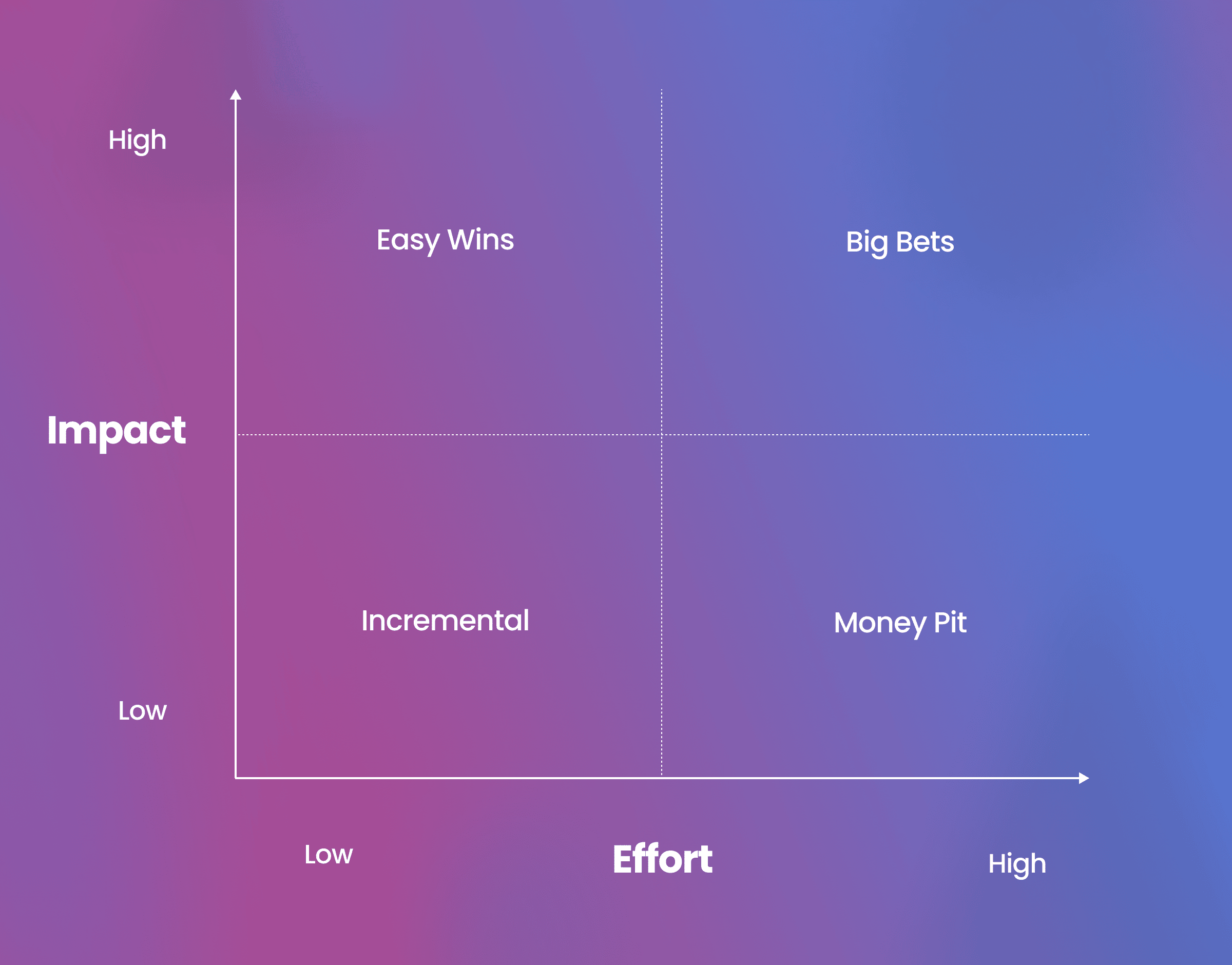When it comes to building a website or custom application, there are two paths you can take: off-the-shelf or custom. You may wonder when it makes sense to build a custom web application vs. using an off-the-shelf platform like Shopify or Salesforce. The answer really depends on your business needs and priorities. But before we get into that, let’s talk about some of the differences between the two approaches so you can better understand why they each have their own strengths and weaknesses.
Start by asking yourself these questions:
- Has my problem already been solved?
- What are my business’s unique needs that are not met by the existing solutions?
- Could building this custom functionality differentiate me from my competitors?
- What are the trade-offs I would need to make with a custom solution? Like time, cost and resources (staffing), performance (speed), scalability, growth enablement, etc.
- What is the yearly cost of the off-the-shelf platform and does the cost justify building a team around it?
Then drill down into how to evaluate your situation based on your answers. Is your need simple or complex?
If your needs are simple, or you don’t have any unique needs that the off-the-shelf platform can’t meet, it may make sense to use an existing platform.
If you have a great idea for a software product but aren’t sure if it will be successful or profitable, an off-the-shelf solution can help you prove your idea or business case at a fraction of the cost compared to building custom.
Putting custom functionality in the backlog until you can hit some designated milestones can also make sense so that you can generate support for your application within your company.
Consider going custom when you have a unique need that can differentiate you or your product in the marketplace
- You have a unique need that can differentiate you or your product in the marketplace. For example, if you’re an eCommerce company and want to provide highly personalized content back to customers based on their previous purchases and interests then you should consider building custom software. This is an ideal use case for creating a customized solution because it helps your business stand out from competitors by delivering a one-of-a-kind service that makes it easier for prospects to shop with you and more likely to convert into customers. Often measuring sales movement is the easiest way to prove the value of a custom application.
- Your business is unique or has different branding values than other businesses in its industry. In these situations, it often makes sense to build something custom rather than buying off-the-shelf software because of how much work goes into properly implementing it (and getting things right) at scale across all channels of communication (web & mobile).
Does your organization prioritize some aspect of the user experience differently than is common for your industry?
If performance and user experience are key to your business, then custom-built applications may be the right choice for you.
If you run an eCommerce store, it’s important that your customers can go through the purchase process easily. Off-the-shelf solutions often don’t have the flexibility to support all the different ways a customer could pay or what they might want their order emails to look like. Also, if you need complex processing or forecasting functionality in your system, chances are that off-the-shelf software will not be able to deliver it for you as well as something custom built for your specific needs.
And this is just one example—if there’s something about how a product works which doesn’t align with how users expect things to work (such as too much friction between steps), this could potentially cause serious damage over time; especially if those users represent a large portion of your target market!
Prototyping can help narrow your focus
We often advise our clients to go through a prototyping phase before choosing to build vs. buy. This phase is highly-important and relatively cheap. We will help you flush out the needs of your MVP, advising you on the level of difficulty for each piece of functionality and measuring their value by effort vs. impact.

At Valtira, we have nearly 20 years of experience building custom web applications and integrating custom functionality with existing products
- We’ve built apps that help improve the speed of window measurements to increase the efficiency of estimating teams in the field.
- We’ve built custom healthcare dashboards that unify hundreds of data sources into a single source of truth.
- We’ve built highly secure subscription services in the video streaming space that allow users access to paid content.
It can be difficult to know when a custom solution is right for your business
There are a lot of things to consider when choosing custom vs off-the-shelf. You have to weigh not only the requirements of the tool, but you should also compare the cost of an off-the-shelf vs. custom solution over time. Oftentimes off-the-shelf solutions are cheaper up front but custom solutions can save you money in the long run, especially when it comes to customizations that can get very costly when working with off-the-shelf solutions.
If you dip your toes in and follow a minimum viable product process, you’ll usually know by the end of it which way to go and that process can happen fairly quickly, usually in 3-4 weeks.
Conclusion
We hope this article has given you some insight into the process of deciding whether to build your website or application custom or utilizing an off-the-shelf platform. We believe it’s important for businesses to make sure they have considered all their options before jumping into a project, as this will save time and money in the long run. If you need help deciding on what direction might be best for your business, contact us today!

